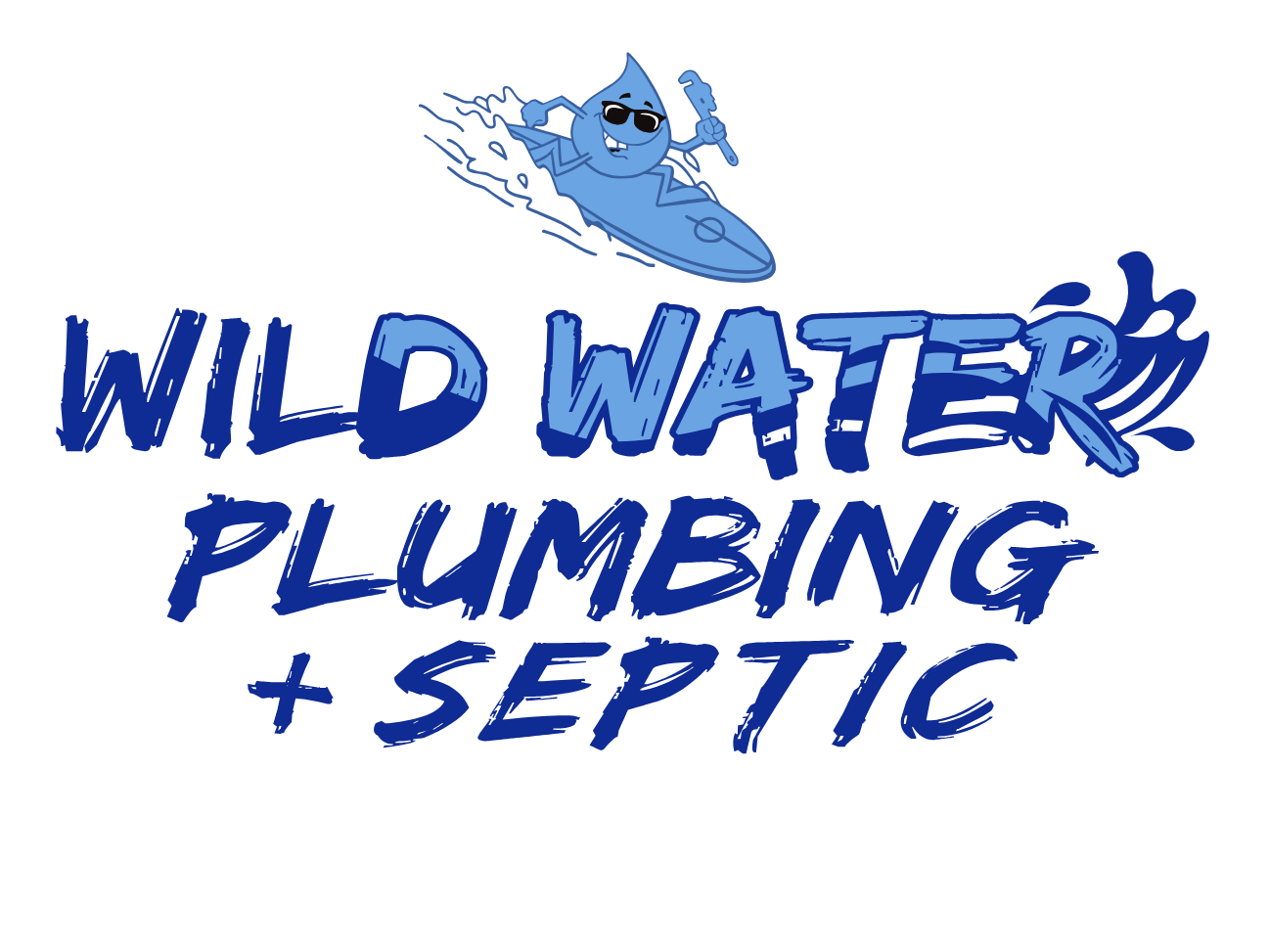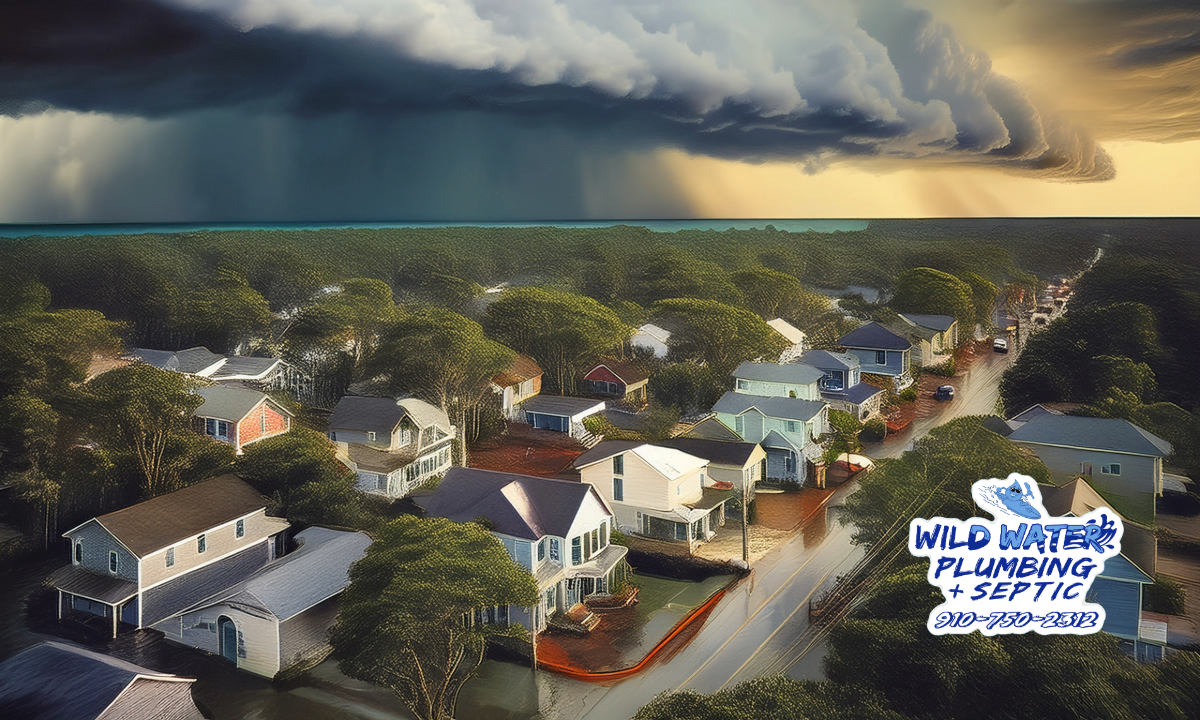By Justin Wilder, Owner of Wild Water Plumbing | Septic Systems
Hampstead’s Growth Is Exploding, and Septic Systems Are Feeling the Pressure
Hampstead is one of the fastest-growing communities in Pender County.
New homes, new neighborhoods, and new families keep moving into areas like Topsail Greens, Cross Creek, Deerfield, Dogwood Lakes, and all the new subdivisions stretching toward Scotts Hill.
But with all this growth comes a problem many homeowners don’t expect.
Septic tank backups are happening more often than before.
Every week I get calls from Hampstead residents dealing with slow drains, sewage odors, gurgling toilets, or full-on septic backups.
And most of these homeowners are shocked to learn that the problem isn’t always inside their home; it’s often the result of changes outside their property.
Hampstead’s rapid development is directly impacting soil conditions, groundwater levels, and aging septic systems.
If you live in this town, your septic system is dealing with more pressure than it ever has before.
Let me walk you through why this is happening and what it means for your home.
New Neighborhoods Are Raising the Water Table and Overwhelming Drain Fields
When hundreds of new homes are built in a small area, all those septic systems drain into the same underground environment.
And the more wastewater is released into the soil, the higher the groundwater rises.
What a higher water table means for your septic system
- wastewater cannot drain properly
- the drain field stays saturated longer
- the tank fills up faster
- toilets begin to flush slowly
- sewage odors rise through the yard
- backups develop during rainy weeks
Hampstead used to have plenty of separation between the soil and groundwater, but with so much development, that space is shrinking.
Neighborhoods built in low-lying areas like Topsail Greens and older parts of Deerfield feel this the most.
Increased Soil Compaction From Construction Is Making Drainage Worse
Every time a new subdivision goes up, heavy machinery rolls across the land, digging, grading, compacting, and flattening the soil.
While this is great for building stable foundations, it’s bad news for septic systems.
Compacted soil causes:
- slow drainage
- pooling water
- clogged drain fields
- septic tanks are filling up more often
A drain field needs oxygen in the soil to function.
Compaction squeezes out that oxygen, leading to poor absorption.
When new developments go in next to older homes, those older septic systems often get worse simply because the soil around them is no longer as breathable as it used to be.
Hampstead Still Has Many Legacy Systems That Are Reaching the End of Their Lifespan
Hampstead may look brand new in some areas, but older neighborhoods like Topsail Greens, Deerfield, and Dogwood Lakes still rely on systems installed 20–40 years ago.
Older systems struggle with:
- outdated tank sizes
- undersized drain fields
- brittle piping
- clogged or collapsed lines
- decades-old soil saturation
Add in rising groundwater from new development, and these older systems simply can’t keep up.
They weren’t designed for the density of homes we have in Hampstead today.
Stormwater Runoff From New Construction Areas Is Overloading Septic Systems
As Hampstead grows, more roofs, driveways, and roads are added. These surfaces don’t absorb water—they redirect it. And much of that redirected water flows toward:
- drain fields
- low-lying yards
- ditches that overflow
- marsh-adjacent properties
When stormwater floods your yard, your drain field becomes saturated.
When the drain field saturates, wastewater has nowhere to go, and that’s when backups begin inside the home.
Clay and Hardpan Soil Layers in Hampstead Slow Down Drainage Even More
Many parts of Hampstead have dense clay layers under the surface.
When soil is disturbed during construction, these layers may be pushed closer to the drain field.
Clay-heavy areas experience:
- standing water
- drain fields that drain too slowly
- higher septic tank levels
- more backups during wet seasons
This is a major problem in neighborhoods near US-17 where the soil transitions from sandy to clay-based.
More People in Each Home Means More Strain on Each Septic System
Newer Hampstead homes often have:
- bigger families
- more bathrooms
- more laundry
- more water appliances
- higher daily water use
But many septic systems in the area were only designed for two to three bedrooms.
The mismatch between usage and design quickly leads to backups, especially in older houses.
Rental Homes and Airbnbs Are Increasing System Load
Some Hampstead homes, especially those closer to the water or in golf-course communities, have become short-term rentals.
These systems often see far more usage than they were built to handle.
High guest turnover causes:
- more flushing
- more showers
- more dishwashing
- more laundry
- overloaded drain fields
Backups become common during peak seasons.
How Hampstead Homeowners Can Protect Their Septic Systems
Even with all the development and groundwater pressure, there are several ways to keep your system healthy.
Pump your tank every 3–5 years
Hampstead systems fill faster due to wet soil and dense development.
Install an effluent filter
This keeps solids out of the drain field.
Upgrade to an EZflow or modern drain field
These handle compacted soil and rising groundwater far better.
Improve drainage around the home
French drains, swales, and downspout redirection make a huge difference.
Schedule yearly inspections
Growing towns need more frequent maintenance.
Increase septic tank size
A larger tank slows down the load on the drain field.
Hampstead’s Growth Is Not Slowing Down: So Your Septic System Needs to Be Ready
Hampstead is becoming one of the busiest and most desirable places in Pender County, but the rapid development is changing the ground beneath your home and putting more pressure on every septic system in town.
If your drains are slowing, your yard stays wet, or your tank fills faster than it used to, it’s time to get ahead of the problem.
I’m Justin Wilder, owner of Wild Water Plumbing.
If you’re in Hampstead and need help with backups, repairs, or septic upgrades, I’m here to protect your home and keep your system running strong.
Call Wild Water Plumbing today. I’ll inspect your system, find the cause of your backups, and help you safeguard your Hampstead property from the effects of rapid growth.
Stay safe and prepared, Jacksonville.
– Justin Wilder, Owner
📞 Call or text me directly at (910) 750-2312 to schedule your storm check today.
Wild Water Plumbing—Local, Veteran-Owned, and Always Ready.
—


